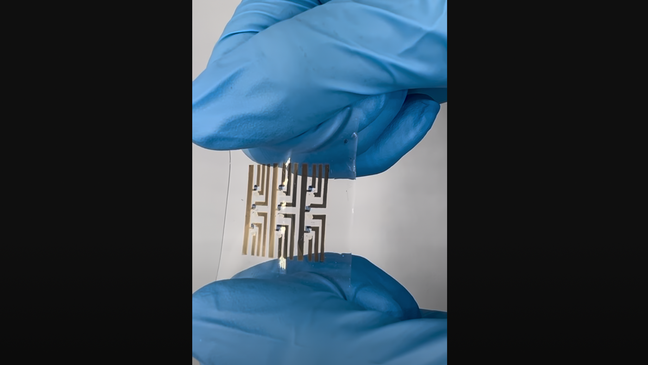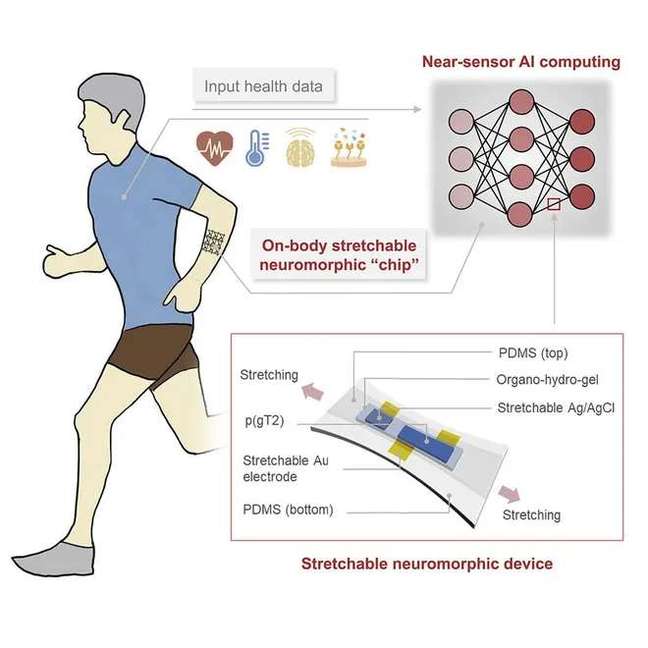The flexible semiconductor material similar to human skin has a built-in neuromorphic chip that can facilitate biometric tracking
Researchers at the Argonne National Laboratory and the Pritzker School of Molecular Engineering at the University of Chicago (PME), both in the United States, have developed skin-like electronic devices that can be used to monitor the wearer’s health throughout the day .

- MIT scientists create a neural network 1 million times faster than the brain
- Graphene “neurons” can mimic synapses in the human brain
According to the scientists, these flexible wearable sensors, when used continuously, can help detect possible health problems – such as heart disease, cancer or multiple sclerosis – even before the first symptoms appear.
“To function properly, this device needs to collect and process a large amount of data, well above what the best smartwatches can do today, as well as perform this task with very low power consumption in a very small space” explains engineering professor Sihong Wang, lead author of the study.
neuromorphic calculus
The researchers were able to meet these requirements by turning to neuromorphic computing, a technology that uses artificial intelligence (AI) to emulate the human brain’s ability to handle previous data sets, learning from past experiences.
They have developed an electronic device that can be embedded in an elastic semiconductor material, similar to human skin. In addition to being highly flexible and malleable, this compound is also capable of conducting electricity more efficiently than solid silicon chips.
“Our neuromorphic chip consists of a thin plastic semiconductor film combined with elastic gold nanowire electrodes. Even when stretched to twice its normal size, this device performs as intended without cracking,” adds Wang.
Practically
During tests carried out in the laboratory, the scientists built an artificial intelligence device trained to distinguish the healthy signals of an electrocardiogram from four different signals that indicated an impending health problem.

After completing the training process, the equipment was able to correctly identify EKG signals over 95% of the time, proving that the device can work efficiently even when subjected to stressful situations, such as stretches and push ups.
“Although it still requires further development on multiple fronts, our skin-like device could one day be a game changer so that everyone can know their health much more effectively and frequently in real time,” concludes Professor SihongWang.
Trending on Canaltech:
- What is the closest planet to Earth?
- Will Twitter End? Find out what’s happening on Elon Musk’s social network
- HBO Max Releases This Week (11/17/2022)
- The matriarch | Check out the new horror movie from Star+
- Doctors treat the baby with a genetic disease while it is still in the womb
- Scientists reconstruct 2,000-year-old face of world’s first pregnant mummy
🇧🇷The best content in your email for free. Choose your favorite Terra newsletter. Click here!
Source: Terra
Camila Luna is a writer at Gossipify, where she covers the latest movies and television series. With a passion for all things entertainment, Camila brings her unique perspective to her writing and offers readers an inside look at the industry. Camila is a graduate from the University of California, Los Angeles (UCLA) with a degree in English and is also a avid movie watcher.





